Electric bike anti-lock braking system head to head: Our verdict on Shimano vs Bosch
We’ve been hands on with both Shimano and Bosch’s ABS systems at Eurobike, finding their limits on a gravel-covered skid pan
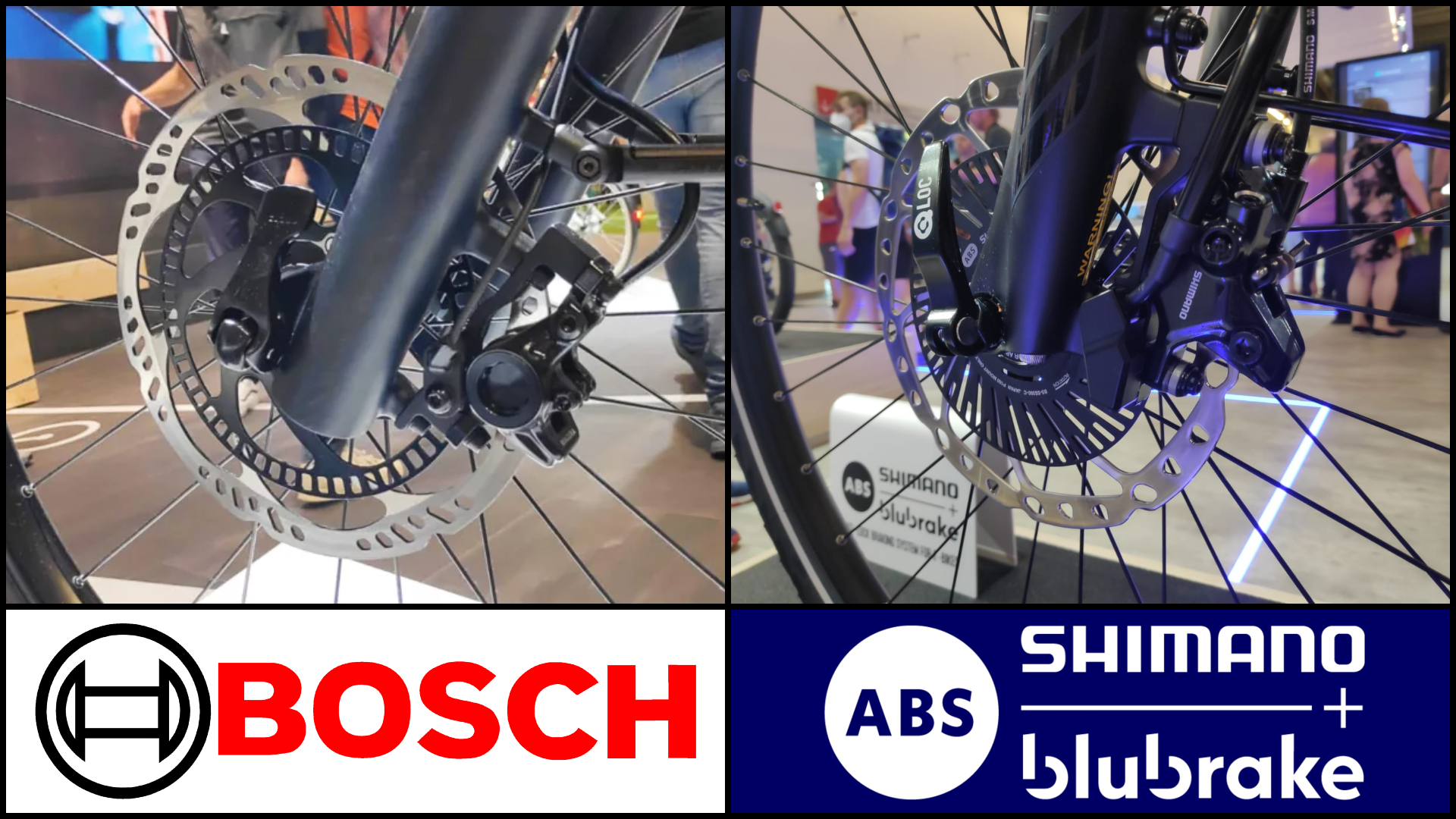
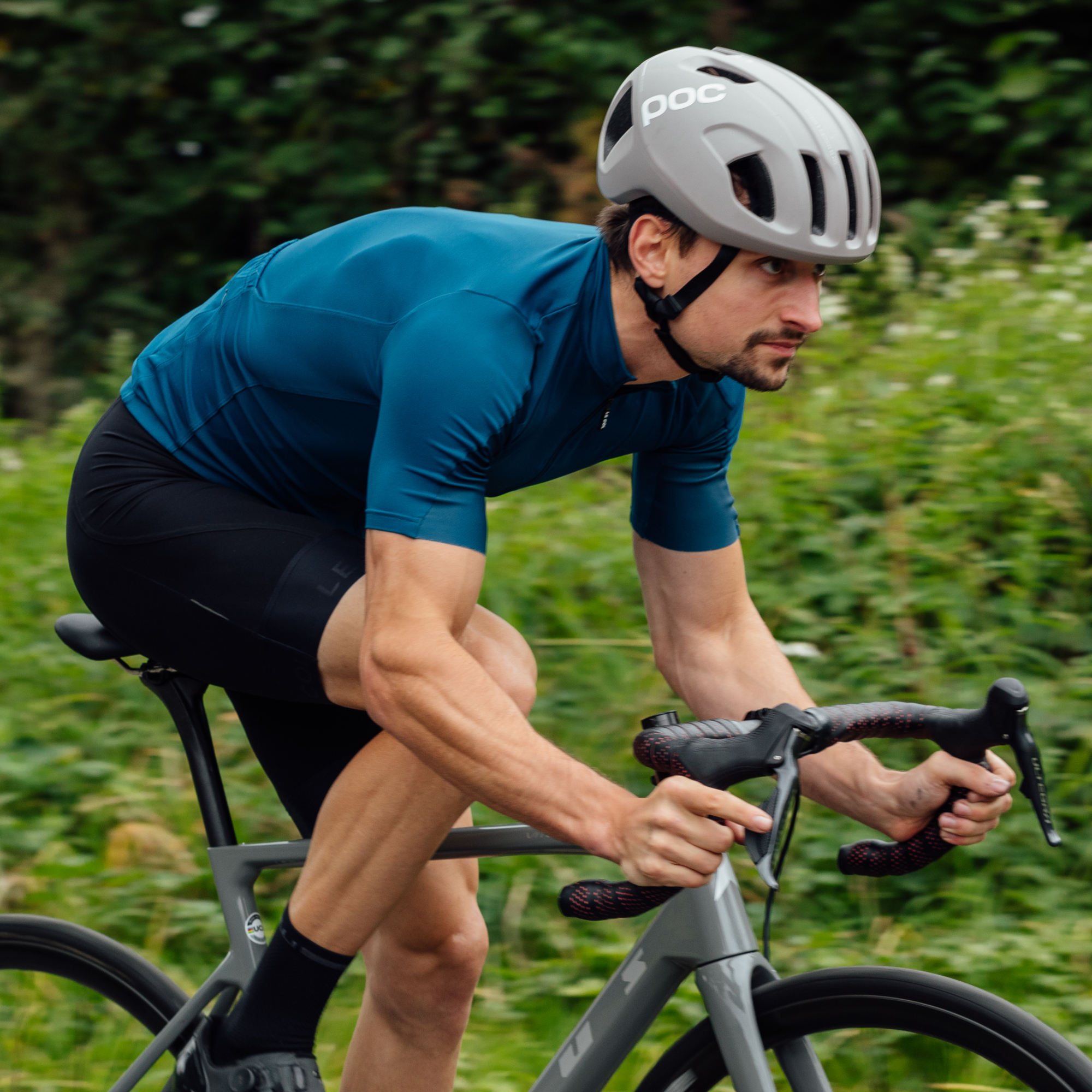
Both Shimano (in partnership with Blubrake) and Bosch were demo-ing their new e-bike ABS (Anti-lock Braking Systems) at Eurobike 2022 – making for an excellent opportunity to pit the two systems against each and see which is best.
The two systems share a number of similarities: both Shimano/Blubrake's and Bosch’s systems have been designed for use with e-bikes, tapping into the main battery to power the ABS system. Similarly, both systems have been designed so as to not give jarring feedback at the lever - unlike the sensation of ABS that you typically get in a car.
And again, both brands have built in ways to adjust the sensitivity of the ABS. Bosch has a trail mode, which is supposed to make it easier to endo around tight, switchback corners on off-road descents - allowing the bike to pitch forward that bit further over the front axle.
Shimano has its standard mode and a cargo-bike mode - the former being tuned to give the rider a bit more control over the braking, with the latter being designed for maximum safety.
But even with all that crossover, the two systems did feel quite distinct. Although Bosch has previously offered an ABS system, this was actually my first time experiencing the technology on a pedal powered bike. So while it made for interesting testing and comparison, this is only my initial impressions, rather than anything nearer a review.
Still, there’s much to say, so let’s jump in!
The Bosch experience
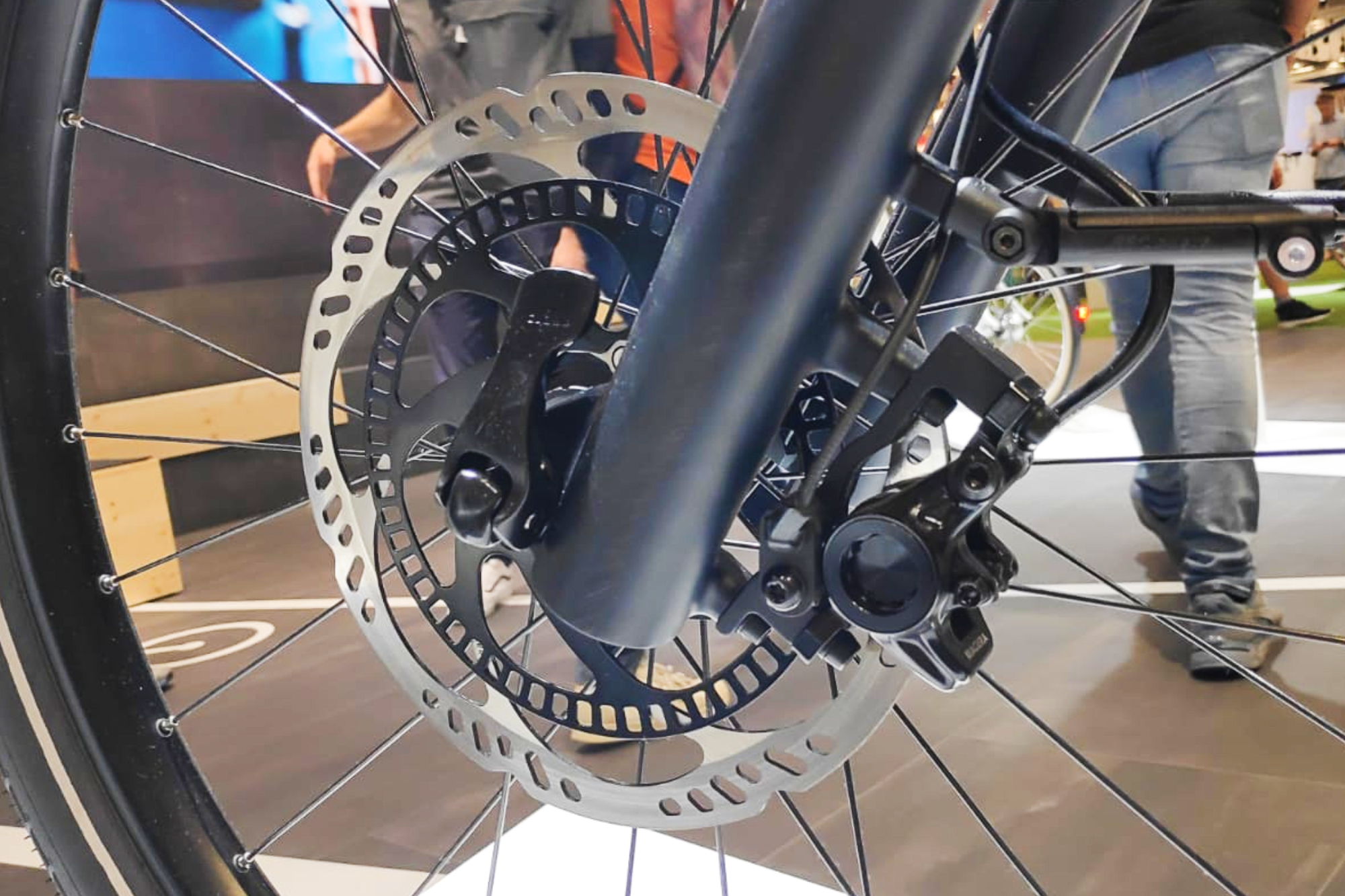
Right next to the Bosch and Shimano stands was a short loop featuring a two-metre long gravel skid pan, consisting of rocks about size you might put on a driveway spread out over the concrete courtyard.
So, starting with the Bosch system, I quickly span up to the 25kph top (assisted) speed of an e-cargo bike and yanked on the front brake as hard as I could, at the moment the tyre touched the gravel.
Impressively, the ABS successfully managed to keep the front wheel from locking up, whilst still applying a high level of braking power that managed to scrub off the speed very quickly.
In my short time on the bikes, I didn't end up testing the cargo with the ABS system turned off to see just how it compared with (my own) human reactions and braking control.
But still, I'll go out on a limb and say that I don't think I could have slowed down as quickly and efficiently as the ABS system managed on that surface. I think I'd probably have either locked up the front wheel in trying to edge too close to the limit of traction or – more likely – I would just ended up stopping over a longer distance.
Swapping the cargo bike out for an MTB to test out the trail mode – if that setting did take me closer to locking up the front wheel and better enabling a little rear wheel lift, I didn’t notice it at all.
To me, it felt just like the cargo setting. To the extent, I even triple-checked it wasn’t. I didn’t feel the rear wheel lift at all and the front wheel still didn’t lock up.
Again, this was just a brief first ride and there wasn't the chance for some detailed troubleshooting, so I’ll keep an open mind about its potential. Still, my first experience was just what it was.
The Shimano experience
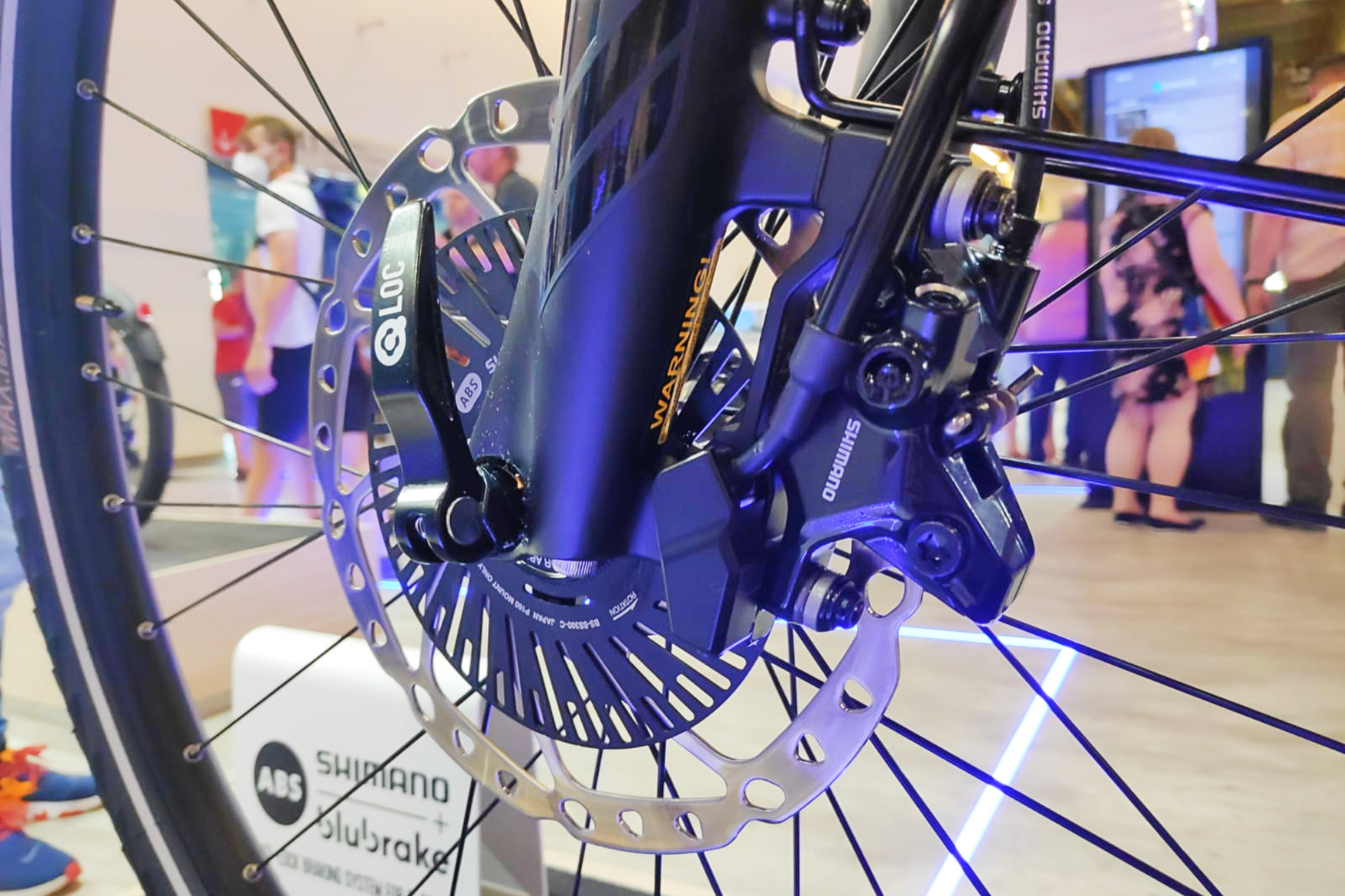
On the Shimano/Blubrake system, the sensation was quite the opposite.
I was riding an e-hybrid bike, and so didn't have the special cargo-bike 'super control' mode applied. As a result, when I grabbed a fistful of brake lever, the front wheel did lock up twice for a split second each time, with the ABS immediately backing off before reapplying itself.
Although the front wheel did momentarily stop turning, it didn’t cause any loss of control. I wasn’t pitched forward and the wheel didn’t wash out - the ABS did back off quickly enough to regain the grip and balance.
But as a result, I didn’t slow down quite as fast as with the Bosch system. It was an object lesson in that to slow down fastest, you need to keep the wheels turning.
Although there is that other, more controlled setting, during my brief time on the bikes I didn’t get to test the cargo mode on the Shimano/Blubrake system. As such, I can’t say whether or not Shimano/Blubrake's ABS can feather the brakes equally as adroitly as the Bosch system.
Even so, the contrasting experiences of the two systems has still left me uncertain about what’s most desirable in an ABS system.
On the one hand, never locking up the front wheel resulted in a more effective braking performance. Plus one that is probably safer in wet conditions, and when you might also be (inadvisably) trying to turn a corner.
But on the other, and ABS system that's quite so effective completely changes the way that you use the brakes. Instead of fine control when trying to stop quickly, it’s just a straight grab as hard as you can.
I suppose that’s no problem if you’re planning on only using bikes with ABS, but already it felt like I was instilling bad muscle memory into my hands. Muscle memory that would only make me more likely to lock up a wheel, when riding a bike without the anti-lock system.
The experience I had on the Shimano/Blubrake-equipped bike was potentially the better balance. In allowing you to actually lock up the wheel – albeit momentarily – it encourages you to feather the brakes as you normally would, so as to avoid that sensation. Still, with a safety net that if you do overstep the mark the ABS will swoop in and save you.
But then again, although more testing is no doubt needed, it did feel like the Bosch system was more effective than myself at stopping quickly. It may well be the case that the pro cyclists could creep nearer the limit than the ABS, and thus stop even faster. But for the majority of riders, squeezing a fist full of electronically controlled brake is likely to be the most effective way of coming to a stop.
Verdict
Having witnessed someone lock up their front wheel, skid out and crash at the foot of the Rundetaarn in Copenhagen – all because of an obstinate pigeon that staunchly held its ground – I can fully see the useful application of bicycle ABS.
Of course, there is something inherently fun about exploring and finding the limits of braking traction yourself, rather than relying on a computer to do it for you. But then it's not as if the advent of motor-powered bikes rendered pedal-propelled ones obsolete – it's about horses for courses and the sphere in which they're used.
From my (brief) experience of where both the Shimano/Blubrake and Bosch systems are today, I can fully see ABS becoming ubiquitous across e-cargo and e-hybrid bikes – essentially any application where the bike is more a means rather than an end purely in itself.

Thank you for reading 20 articles this month* Join now for unlimited access
Enjoy your first month for just £1 / $1 / €1
*Read 5 free articles per month without a subscription

Join now for unlimited access
Try first month for just £1 / $1 / €1
Get The Leadout Newsletter
The latest race content, interviews, features, reviews and expert buying guides, direct to your inbox!

After winning the 2019 National Single-Speed Cross-Country Mountain Biking Championships and claiming the plushie unicorn (true story), Stefan swapped the flat-bars for drop-bars and has never looked back.
Since then, he’s earnt his 2ⁿᵈ cat racing licence in his first season racing as a third, completed the South Downs Double in under 20 hours and Everested in under 12.
But his favourite rides are multiday bikepacking trips, with all the huge amount of cycling tech and long days spent exploring new roads and trails - as well as histories and cultures. Most recently, he’s spent two weeks riding from Budapest into the mountains of Slovakia.
Height: 177cm
Weight: 67–69kg
-
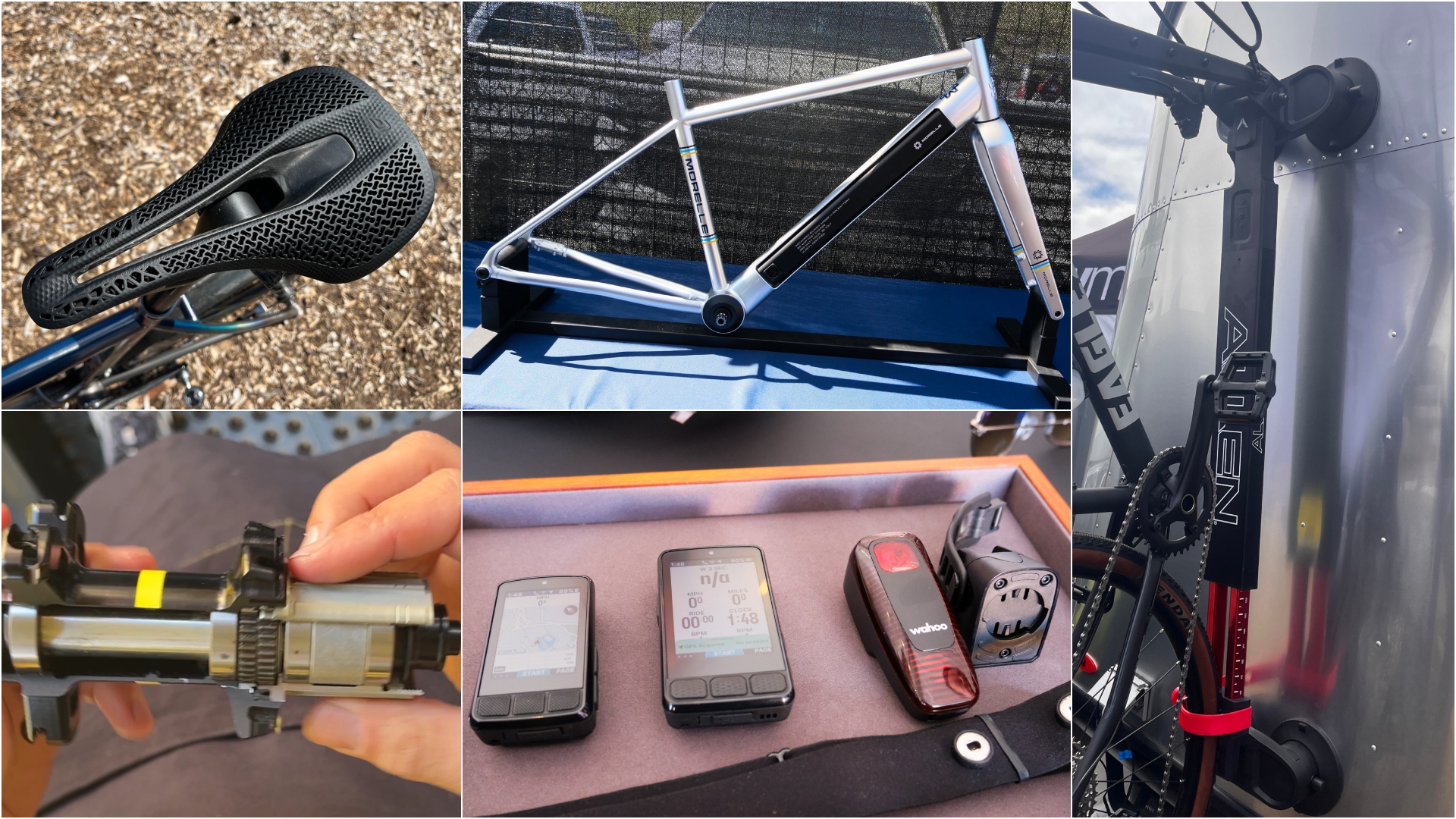 A bike rack with an app? Wahoo’s latest, and a hub silencer – Sea Otter Classic tech highlights, Part 2
A bike rack with an app? Wahoo’s latest, and a hub silencer – Sea Otter Classic tech highlights, Part 2A few standout pieces of gear from North America's biggest bike gathering
By Anne-Marije Rook
-
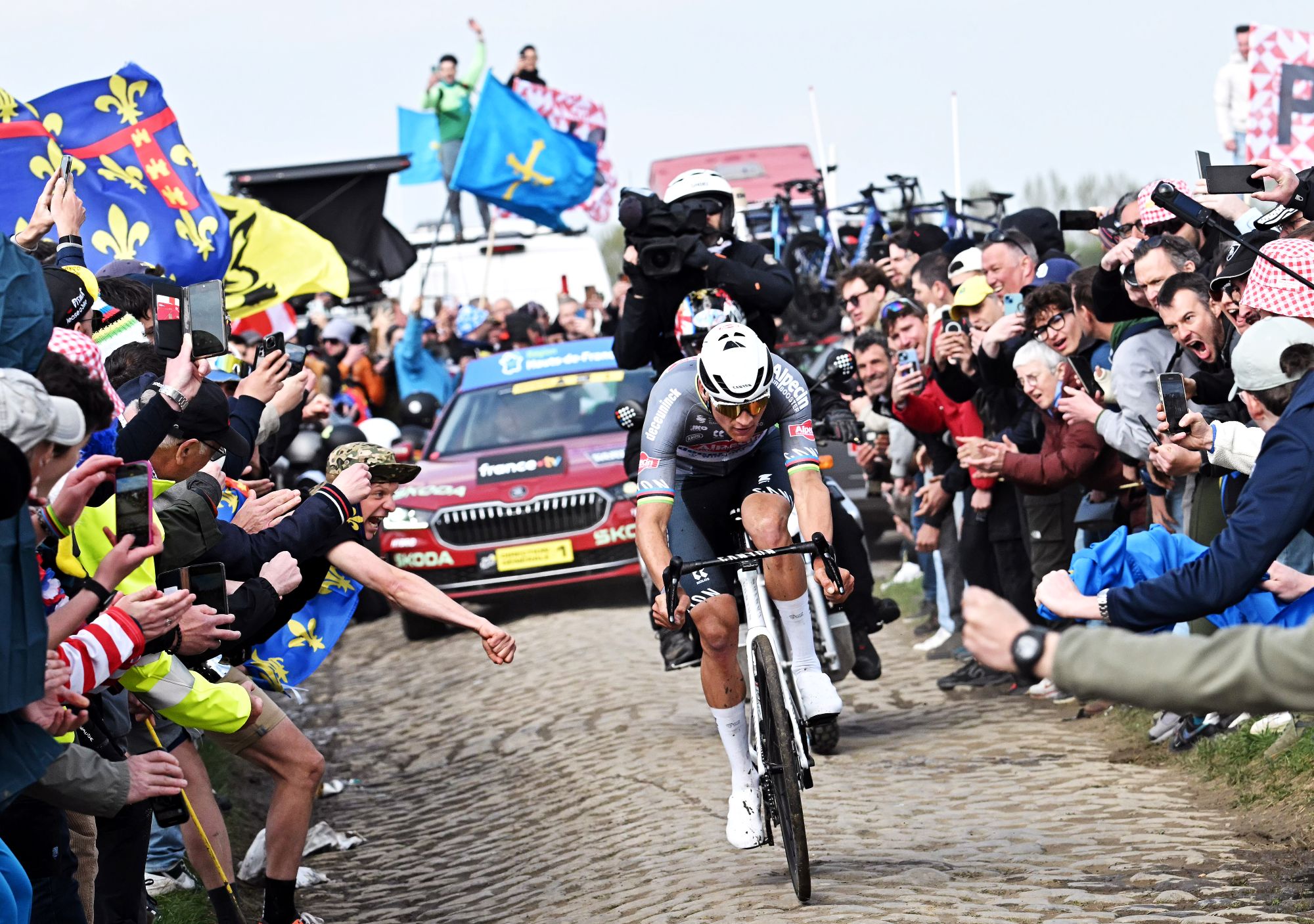 Cycling's riders need more protection from mindless 'fans' at races to avoid another Mathieu van der Poel Paris-Roubaix bottle incident
Cycling's riders need more protection from mindless 'fans' at races to avoid another Mathieu van der Poel Paris-Roubaix bottle incidentCycling's authorities must do everything within their power to prevent spectators from assaulting riders
By Tom Thewlis